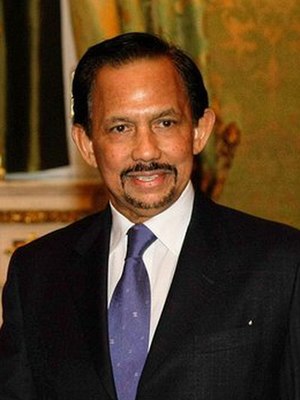For Immediate Release:
October 19, 2011
October 19, 2011
Contact:
Christine Chester, 617-695-2525
Christine Chester, 617-695-2525
Corporate Accountability International strongly supports the Occupy Wall Street actions and demonstrations sweeping non-violently across the globe calling for an end to all manner of corporate abuse.
For nearly 35 years Corporate Accountability International has exposed and challenged corporate interference with democracy, human rights, people’s health and the environment. Occupy Wall Street underscores people’s demand for change.
The Occupy Wall Street movement is vibrantly and creatively raising issues critical to the U.S. and the world, including:
- Extreme economic inequity. Today, unemployment, under employment and poverty rates threaten people’s health and well-being. At the same time, executive salaries on Wall Street and beyond continue to soar at grossly disproportionate rates. While the most highly profitable corporations evade paying their share of taxes, essential public services are being cut due to budget shortfalls. Global corporations, at large, shoulder the public with the burdens of their abuses: economic as well as social.
- The corrupting of democracy. With the recent Citizens United U.S. Supreme Court ruling, corporate dollars flow into elections like never before. These corporations remind policymakers daily of their “investments” with heavy-handed lobbying at every level of government.
Corporate Accountability International’s very mission and the heart of its every campaign is to challenge the power and influence of transnational corporations. Occupy Walls Street signals a broad, growing movement toward a future where people and democratic institutions are in the driver’s seat. As more and more people grow disenchanted with our current political and economic affairs, structured campaigns challenging corporate abuse and protecting people like Corporate Accountability International’s are increasingly important and are a central driver of change.
Just as Occupy Wall Street momentum grows, Corporate Accountability International is scaling up three major, long-term campaigns that challenge the ability of corporations to threaten public health, human rights and our democracy by challenging:
- the World Bank to stop fueling a global corporate water grab that is threatening millions of people’s access to our most basic resource and right;
- Big Food to stop interfering in public policy that could help reverse today’s epidemic of diet-related disease and revitalize a broken food system; and
- tobacco transnationals to stop undermining implementation of the world’s first public health and corporate accountability treaty – the global tobacco treaty – which could save as many as 200 million lives in the decades to come.
Additionally, Corporate Accountability International members and staff are joining Occupy Wall Street from Boston to Oakland, through street demonstrations, social media and beyond in carrying a message of reform. We can no longer settle for change that is little more than window dressing – addressing the symptoms of corporate influence over our democracy while failing to strike the problem at its root.
As more and more actions and demonstrations take hold, Corporate Accountability International is working alongside Occupy Wall Street, with allied organizations and people across the globe toward a world where major decisions affecting people and the environment are made democratically, not behind closed doors in corporate board rooms. To that end, Corporate Accountability International calls on corporate decision-makers to change course and abide by a high set of standards of political conduct, including:
- Lobbying: Corporations must fully and publicly disclose all lobbying activities around the world, including through trade associations and public relations campaigns.
- Political Contributions: Corporations must end financial contributions to political candidates, parties and referenda worldwide.
- Political Access: Corporations must not trade favors with or buy access to local, national or international public officials.
- Safeguards: Corporations must follow the precautionary principle and must not interfere in the development or implementation of global, national or local policies affecting human rights, health or the environment. Corporations must also require their subsidiaries and suppliers to abide by such policies.
- Independent Oversight: Corporations must respect the independent authority of and refrain from "partnering" with institutions that set standards affecting their business.
- International Institutions and Agreements: Corporations must accept policies that protect people, human rights and the environment and must not use trade agreements or governing institutions (such as the World Trade Organization) to preempt such policies or use them for private gain.
- Local Control: Corporations must honor local control over natural and financial resources.
Furthermore, the political culture in Washington and capitols around the world must change.
In the U.S., policymakers must take clear-cut actions that serve the public interest, including:
- Closing tax loopholes for major corporations.
- Ending what were intended by the Bush Administration to be temporary tax cuts for the nation’s wealthiest individuals.
- Reinvesting in public services such as public water infrastructure and education as a means of buoying the economy and putting people back to work.
- Protecting the rights of workers to organize for better pay and safer working conditions.
In the U.S. and around the world, now is the time for policymakers to take a hard look at models for divorcing corporate interference from today’s politics – even if it means jeopardizing campaign contributions in return for the public’s support. And they needn’t look far.
Corporate Accountability International and its international allies campaigned successfully to secure safeguards against corporate interference in policymaking at the U.N. that are guideposts for countries globally, enshrined in the global tobacco treaty now ratified by 174 countries. These safeguards say no to revolving doors between the industries and agencies that govern them. They say no to corporations writing the policies aimed at reining in their abuses. They say no to the current flow of corporate dollars into democratic institutions to curry favor with public officials. They say no to the types of conflicts of interest that helped engender a global financial collapse.
People around the world are calling for a new political culture that says “yes” to greater corporate accountability and has the backbone to stand-up to powerful, abusive interests that government exists to counterbalance. The time to act is now.
###


